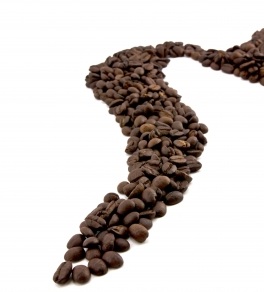 Many studies have shown that caffeine before a workout can improve athletic performance. This is because:
Many studies have shown that caffeine before a workout can improve athletic performance. This is because:
1. it is a stimulant of the central nervous system
2. it is glycogen sparing. What this means is that the glycogen (stored carbohydrate in our muscles and liver) which is broken down to give us energy is used more slowly, due to caffeine mobilising free fatty acids (FFAs) in the blood that can be used as an alternative energy source.
But caffeine can disrupt insulin sensitivity, and it also increases circulating cortisol which can lead to an increased appetite.
The best time to drink coffee is in the morning after food (unless it is pre exercise). Habitual caffeine intake promotes tolerance.
Alternatives: decaffeinated coffee is often processed with chemicals so is best avoided. Green tea is a great alternative as it contains caffeine, but it also contains tannins that balance out the caffeine’s effects. Many athletes use green tea as part of their nutrition programme. Studies have shown it can aid weight loss, plus it is high in antioxidants, which are needed to combat the free radicals produced whilst exercising.
